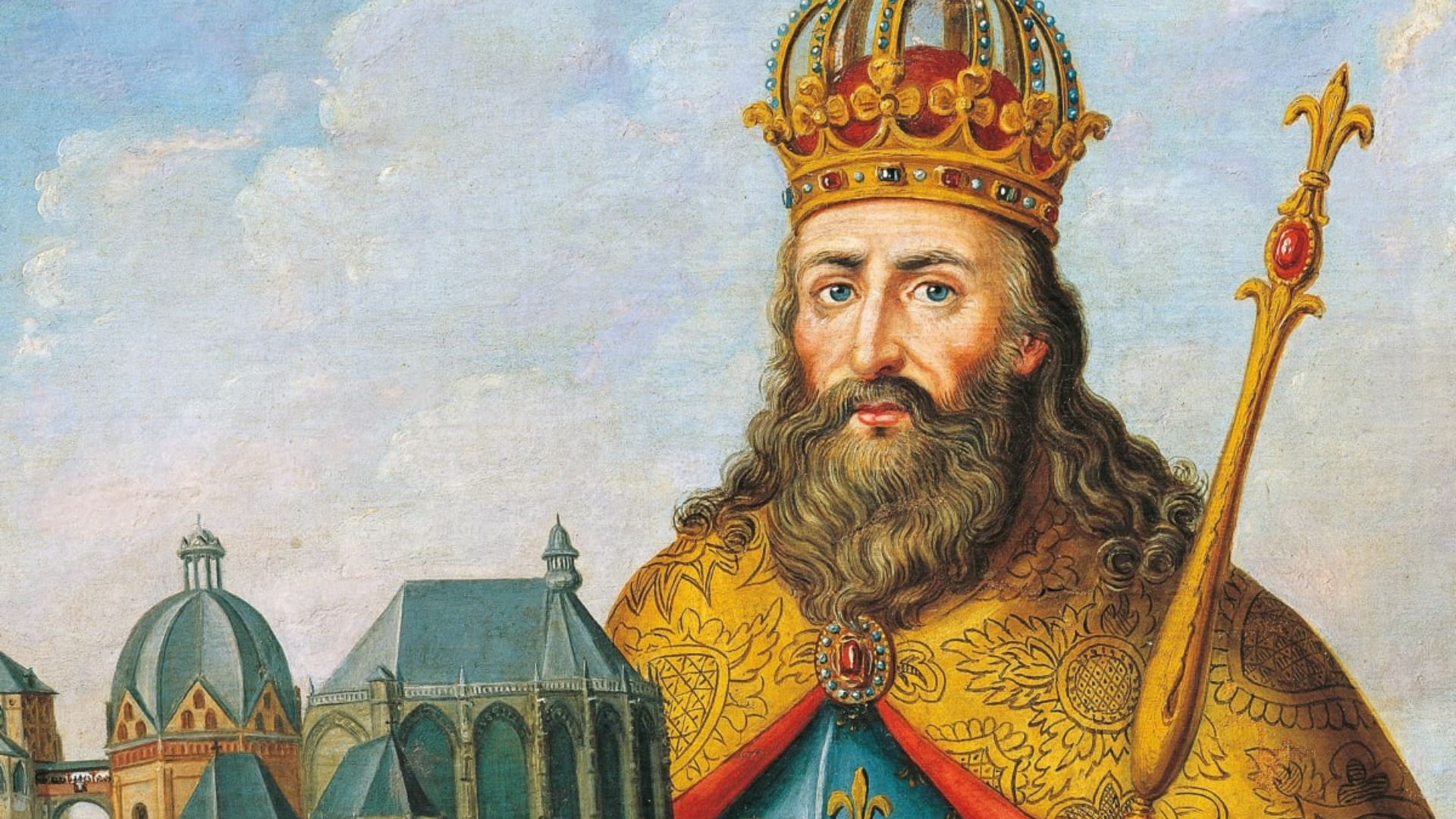Brave, bold, and brutally successful—he was known as Charlemagne (Charles the Great). Charlemagne is remembered as one of history’s great leaders. This warrior king succeeded in building an empire that united much of Europe.
A legend in his own lifetime, Charlemagne was hated and feared by some. Yet many others saw Charlemagne as the ideal Christian ruler.
BORN IN WAR-TORN EUROPE
Charlemagne was born in ad 742, when all Europe was at war. The mighty Roman Empire that once ruled Europe had collapsed. Invaders were attacking from the east. Tribes from the north were moving south. The peoples of Europe were fighting among themselves. Everybody wanted to conquer more land.
Europe was also a religious battleground. Many Europeans followed ancient, non-Christian religions. But the Roman Catholic Church said these older religions were evil. Leaders of the church, called popes, urged European kings to create a new Christian empire. This empire would replace the old Roman one. It would restore law and order.
EARLY ADVENTURES
Charlemagne’s father was king of the Franks, a people living in France and Germany. His family was Christian. While still a boy, Charlemagne helped his father fight against enemies of the pope. They won a series of victories and much land.
Charlemagne’s early adventures set the pattern for his future. He fought to protect the Catholic Church, spread the Christian faith, and increase his own territory.
CHARLEMAGNE’S CONQUESTS
Charlemagne became king of the Franks in 771. He wasted little time in attacking the Saxons, his non-Christian neighbors in northern Germany. Charlemagne gave the Saxon people a brutal choice: Become Christian or be killed. Many Saxons rebelled. It took Charlemagne more than 30 years of bitter fighting to win a complete victory over the Saxons.
Charlemagne went on to conquer lands in Bavaria, Austria, Hungary, Croatia, Slovenia, and Italy. In 778, Charlemagne invaded Spain, but he found little success. His retreating army was ambushed and suffered a heavy loss. But by 795, Charlemagne controlled most of western Europe.
CROWNED BY THE POPE
In 799, Charlemagne hurried to Rome to put down a rebellion that threatened the pope. The pope showed his thanks to Charlemagne on Christmas Day 800. He put a golden crown on Charlemagne’s head and declared him the emperor of the Romans.
GOVERNMENT UNDER CHARLEMAGNE
Charlemagne kept his empire under very firm control. He made leading nobles collect taxes, punish criminals, and fight for him in war. In return, he gave them land. He also chose bishops, who had power over local church affairs. Each year, Charlemagne called the nobles and bishops to his palace to make reports.
Charlemagne built new roads and bridges so that messengers could carry his orders at top speed. He commanded that coins should be the same in all his lands, to encourage trade. He arranged laws from all over the empire into a grand new legal code. The empire flourished under Charlemagne’s wise and energetic rule.
Although fierce in battle, Charlemagne had a gentler side. He loved books and the company of scholars. He set up schools across his kingdom to teach Latin, the main written language at that time. He encouraged the schools to teach the children of the poor.
A NEW EUROPE
Charlemagne died in 814. His empire did not survive long. In 843, it was divided among his grandsons. A part of Charlemagne’s vast empire later became known as the Holy Roman Empire, which lasted until 1806.
Charlemagne’s rule had a lasting influence on European life. Charlemagne united the Christian lands of western Europe and firmly established the power of the church. Charlemagne also helped bring about a revival of thought and learning in Europe.












0 Comments